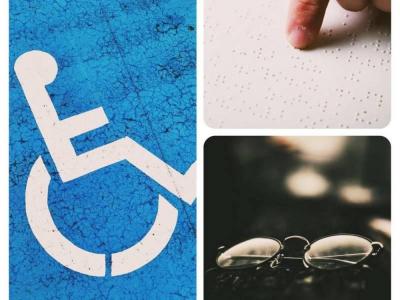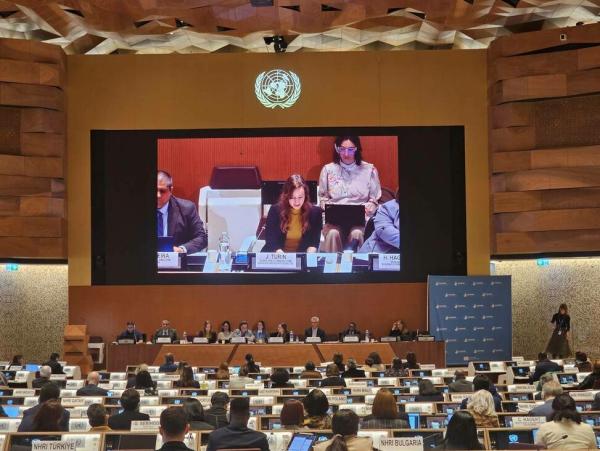The Ombudsman also attends this year's GANHRI Annual General Assembly in Geneva
On 10 and 12 March, Deputy Ombudsman Miha
Horvat and Jerneja Turin, advisor-analyst of the Human Rights Centre, as
representatives of the Human Rights Ombudsman of the Republic of
Slovenia (Ombudsman), were in Geneva, Switzerland to attend the annual
meeting of the General Assembly of the Global Alliance of National Human Rights Institutions (GANHRI),
which has around 118 members from all over the world. The Ombudsman was
previously a member of it, but 2020 was historic because it was then
that the (final) key actions of the approximately three-year-long
efforts to obtain A status under the so-called Paris Principles on the
Status of National Human Rights Institutions (NHRIs) took place. After a
successful oral defence before the GANHRI accreditation subcommittee on
10 December 2020, which was conducted by the aforementioned Deputy
Ombudsman, the Ombudsman managed to obtain A status for the first time
at the beginning of 2021, making the country the first (and still only)
national institution to be so accredited. The Ombudsman has thus also
gained full rights in international associations such as GANHRI and ENNHRI
(European Association of National Human Rights Institutions) and
greater opportunities for cooperation within the framework of the United
Nations and at the regional level.
During the reporting and discussions at this year's
GANHRI annual meeting, it was repeatedly highlighted that the role of
NHRIs is also critical in the current changes on the global stage, but
at the same time they are themselves subject to new challenges. In this
regard, for example, issues such as undermining the rule of law, the
inclusion of artificial intelligence in the framework of human rights
and human rights in the armed forces were highlighted, and a special
topic on the agenda was the human rights of women and girls in
particular. The report on the European region was presented by the
regional chair, Ms Louise Holck, a representative of the Danish NHRI, while Jerneja Turin, as chair of the ENNHRI working group on the rights of persons with disabilities presented her experiences with the promotion of the rights of persons with disabilities.
The agenda also included the accreditation procedure and accreditation
of national institutions with statuses according to the so-called Paris
Principles by the GANHRI Accreditation Subcommittee,
which is particularly important for the Ombudsman this year, as it will
soon have to apply for re-accreditation with status A. To this end, it
will be necessary to demonstrate, in a reasoned manner and supported by
documentation, how the institution has achieved the standards of status A
according to the so-called Paris Principles in the past five years,
with the aforementioned subcommittee expecting institutions with already
granted status A, and therefore also the Ombudsman, to demonstrate
further strengthening of their efficiency and independence before
re-accreditation
As an interesting fact in the context of the
European space, it should be noted that the Swedish national human
rights institution first acquired A status in 2024, in Iceland, after
the relevant legislative changes, the national human rights institution
began operating in the new year, and in the Czech Republic, the legal
basis has already been adopted and the national human rights institution
is expected to be established on this basis. Italy and Malta are
examples of countries in the European Union where such an institution
has not yet been established or accredited.













 Back
Back 






